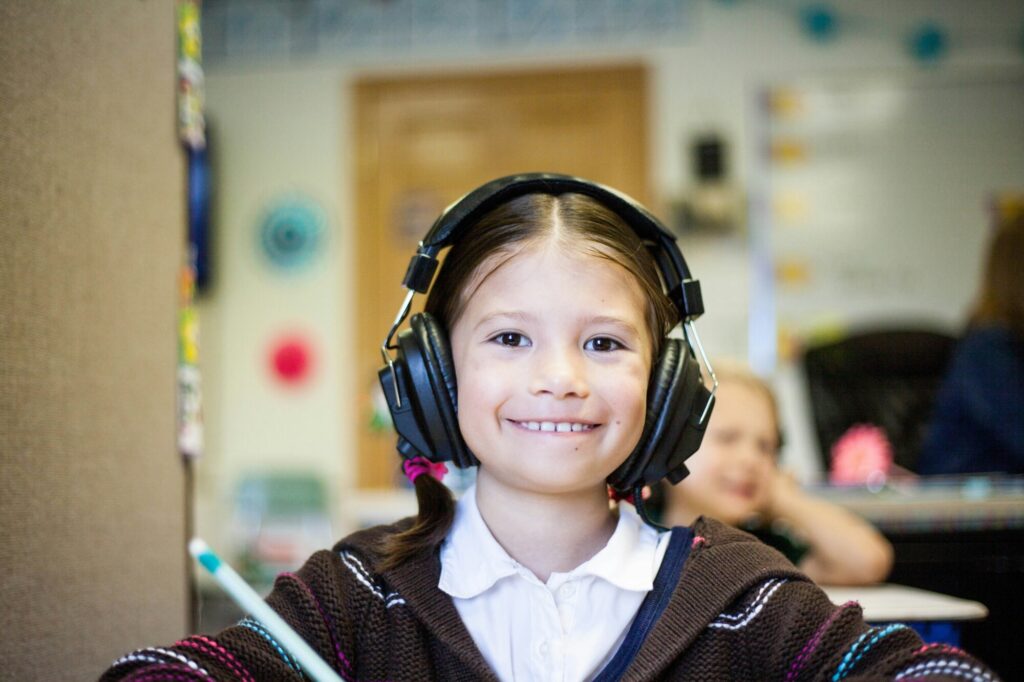
Forget bear hunts, here’s how to do a book hunt.
January 13, 2024
Program coordinator, Reading Partners South Carolina
Families, let’s go on a book hunt…
We’re going on a book hunt. We’re going on a book hunt. We’re going to find a good one.
Think back to your own childhood for a moment. Remember the book with the accompanying chant, We’re Going on a Bear Hunt? (Here’s a read-aloud from the author if you need to jog your memory.) It’s a classic story of adventure, exploring the outdoors, and spending time with family. Inspired by the pages of We’re Going on a Bear Hunt comes a new adventure that will help your family embrace a love of literacy and find your next great read.
Going on a book hunt involves your family reading and talking together about books. Opening the pages of a good book with loved ones can ignite a spark in each member of the family’s imagination. Then, as families begin to share what they are thinking about while reading together, they can strengthen their comprehension skills.
As a young child, I went on my own book hunts while reading with my parents. When I became a big sister, I enjoyed reading to my younger brothers, as well as any children I babysat. Like my parents, other families can start their own book hunts by having an array of books available at home and by going to the library with their kids.
Reading together encourages young readers.

Make reading a priority
In order to become lifelong readers, kids need to see that reading is a priority in their families. Parents and caregivers should model reading alone and with one another so their children can hear what good reading sounds like and looks like. In my own life, I use voice inflections and facial expressions when reading aloud to kids so they can see I’m having fun and feel more engaged in the story. Additionally, this helps children see their family members’ imaginations at work, which can help them understand their own imaginations better.
Book Hunt Activity: To make reading a priority, encourage your kids to read anything and everything! From billboards to cereal boxes to street signs and anything else you come across, model how important it is to have strong literacy skills by pointing out how often words show up in your daily lives.

Discuss what you read
For kids to gain essential comprehension skills, parents/caregivers can be intentional about talking to their children about what they are reading. The best way to do this is by asking your child questions before, during, and after reading together. Encourage your reader to talk about how the characters may feel and why they made the decisions they did in the story. To really get your kids engaged, see if they can imagine an alternate ending for the story or see if they’d like to retell the story by acting it out for other family members, neighbors, and friends.
Book Hunt Activity: After you finish reading a book with your child, ask them to summarize the story by painting a picture with their words. Ask them questions such as:
- What happened in the story?
- What was the main character like?
- What was your favorite part?

Other ways for families to engage in reading together
There are tons of ways to make reading more engaging for reluctant readers. From turning your reading time into a fun book hunt to acting out your favorite characters, here are a few more ideas to help your young readers embrace a love of literacy:
- Create a comfy reading nook in your home. Here’s how!
- Build a blanket fort to read inside.
- Visit the local library for story hour.
- Go on a picnic and read in the park.
- Join a group to read, talk about books, and even role-play the characters.
- Create a storyboard and a diorama to discuss a book you read.
- Go on a real book hunt by hiding stories around your home.
Happy book hunting!



